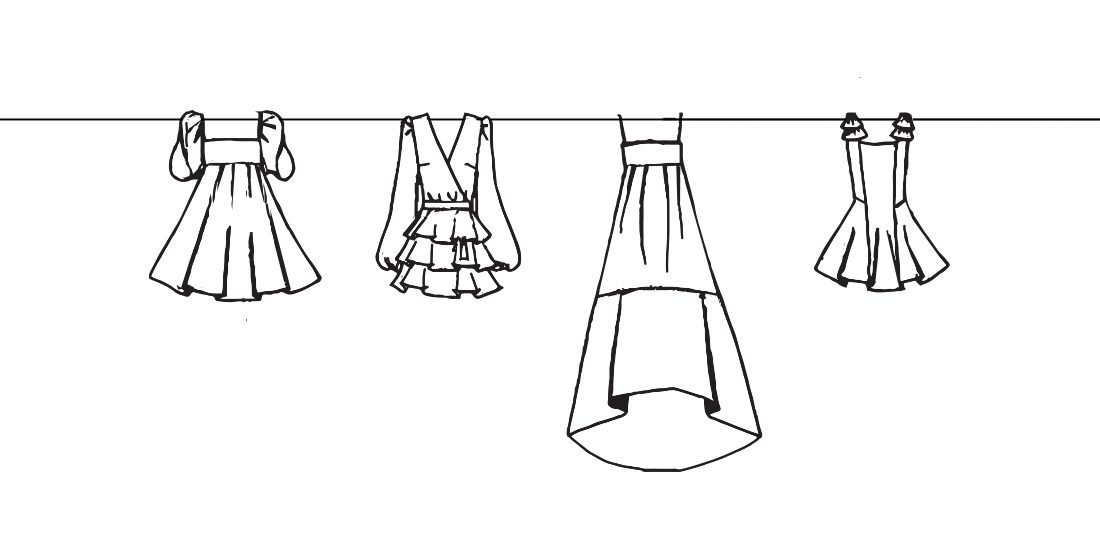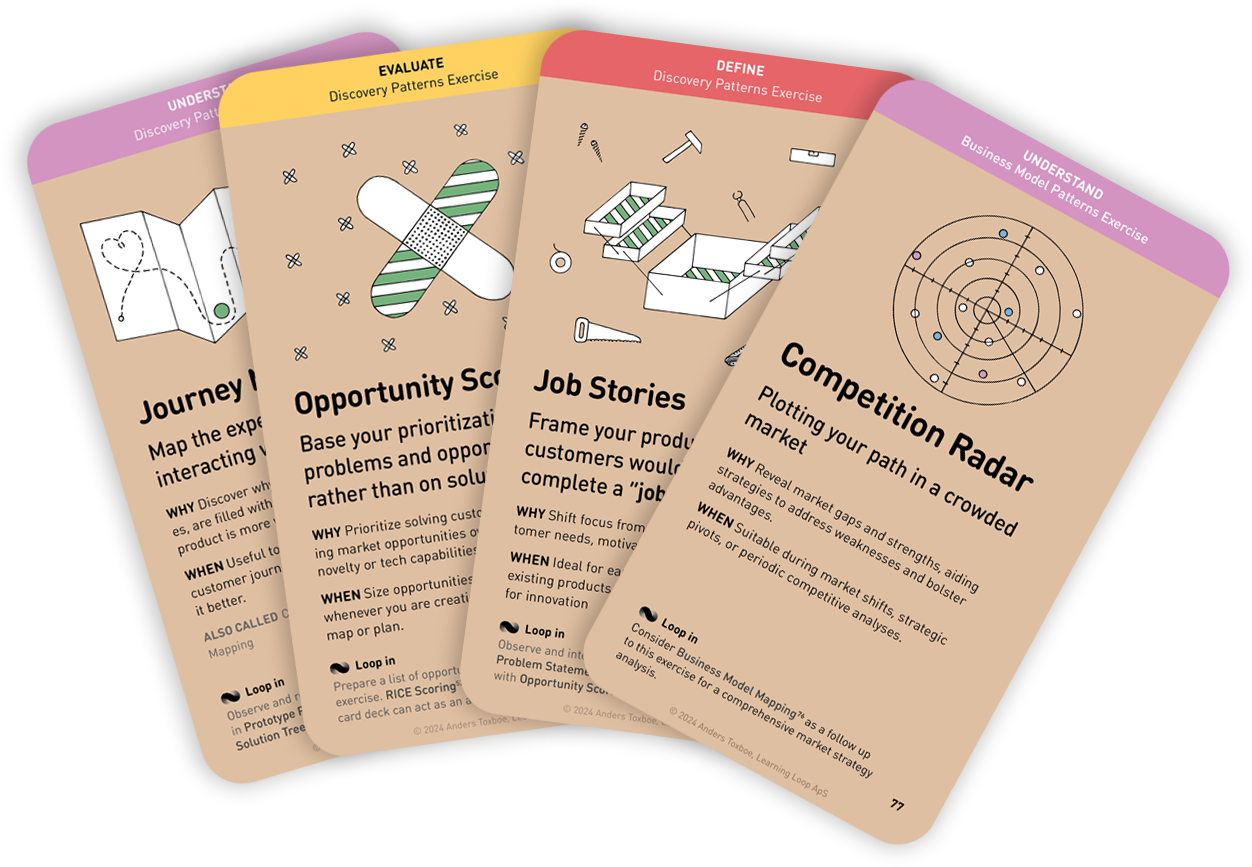Workshop Exercises: Ideate
Competitor Demos
Find companies solving similar challenges to find new ways to solve your own

Why: Avoid reinventing the wheel by learning from existing solutions in the market
When: As you face a challenging problem and need to discover different perspectives and approaches
Explore existing solutions
In this exercise, each team member go solo and dedicate around half an hour to investigating and making observations about 2-3 existig products or services. Their is to uncover solutions that can inspire the group.
Each participant should tryy to stretch their imagination beyond their everyday industry or field. They should look just as much at other domains as their own industry yor company – so long as what they find offers valuable insights for the team.
As they embark on their discovery journey, each team member should pen down the key ideas from the examples they explore on a sticky note. These notes will act as a treasure map for the Demo stage. At the end of the 25-30 minutes, everyone should be armed with 3 big ideas inspired by their research, ready to share with the group.
A wall full of ideas
At the end of these Competitor Demos, your whiteboard should be a canvas of about 10 to 20 ideas. It’s the sweet spot of having enough inspiration from everyone, yet not overwhelming the team with excessive ideas as they transition into sketching mode.
It’s important to note that we’re not scoring or debating over the ideas at this stage. The focus is simply on presenting and recording them.
Why? The Competitor Demos are meant to fuel the sketch and ideation activities following the exercise. We want to keep this stage purely informational, free of opinions. When the sketching and ideation phases rolls in, each team member will make their own value judgement, deciding which elements they want to weave into their sketches and which ones they feel aren’t adding value.
Instructions for running this play
Dissect what has made competitors approach successful and find ways to implement the tactics in our own solution.
- Explain the premise. Focus on showing, not telling. When participants find ideas or concepts, they should find visual representations (screenshots, etc.) that they can point to to make it tangible and align everyone.
- Frame problem. Articulate on the challenge you want to explore. How Might We…* is a great way to frame it.
- Find competing solutions. Give participants a Timebox of 15-20 minutes to, silently and alone, look online for 1-3 products, companies, services, or people who solved a similar problem or in other ways inspired. Let participants write sticky note for each idea formatted like this:

- Present solutions. Give participants a Timebox of two minutes to present their ideas by showing them on the screen. Let them read out the accompanying sticky notes.
Tips to perfect this play
Master and adapt the play to fit your context and needs.
Tip: A research session
Frame this exercise as a research session that will help gather valuable information and inform your decisions down the line.
Tip: Any industryy works
You are not restricted to your industry only. Draw lines from any industry or company
Tip: Steal
Focus on the tangible elements of the ideas you find. Demo the ideas you want to steal.
Tip: Project your ideas
Show ideas on a TV, monitor, or projector, if you have it in the room.
Tip: Own ideas
If a participant has worked on a similar solution or problem, they can demo their own ideas
Tip: Prepare as homework
If coming up with ideas to research is tricky on the spot, then assign the research portion of the Competitor Demos as homework.
A collection of workshop exercises that will help you ditch dull meetings and facilitate with confidence. It will help you master the design process and have more productive time with your team. The card deck will be ready for purchase in the end of 2026 and is now undergoing rigorous testing.
Reserve your deck!Related plays
- Effective Ideation Exercises & How to Use Them by Anastasia Ushakova
- Competitor Demos by Jake Knapp
- Spark Inspiration with the Lightning Demo by Alvin Hermanto
- Competitor Demos
- Competitor Demos
